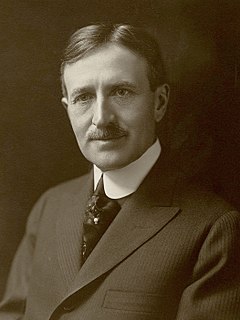A Quote by Gary Wolf
The problem of forgetting might not torment us so much if we could only convince ourselves that remembering isn't important. Perhaps the things we learn - words, dates, formulas, historical and biographical details - don't really matter. Facts can be looked up. That's what the Internet is for.
Related Quotes
Humans are really interesting. We're so clever, what we do with our brain. How we manage to con ourselves into thinking all sorts of things is really fascinating. By the same token, if we could just convince ourselves of things that would gather us together and powerfully turn things around for the good, that would be awesome. It's doubtful because we're such a fear-based species.
We become so caught up in the busyness of our lives. Were we to step back, however, and take a good look at what we’re doing, we may find that we have immersed ourselves in the “thick of thin things.” In other words, too often we spend most of our time taking care of the things which do not really matter much at all in the grand scheme of things, neglecting those more important causes.
An executive cannot gradually dismiss details. Business is made up of details and I notice that the chief executive who dismisses them is quite likely to dismiss his business. Success is the sum of detail. It might perhaps be pleasing to imagine oneself beyond detail and engaged only in great things, but as I have often observed, if one attends only to great things and lets the little things pass the great things become little; that is, the business shrinks.
What made losing someone you loved bearable was not remembering but forgetting. Forgetting small things first... it's amazing how much you could forget, and everything you forgot made that person less alive inside you until you could finally endure it. After more time passed you could let yourself remember, even want to remember. But even then what you felt those first days could return and remind you the grief was still there, like old barbed wire embedded in a tree's heartwood.
I really enjoy forgetting. When I first come to a place, I notice all the little details. I notice the way the sky looks. The color of white paper. The way people walk. Doorknobs. Everything. Then I get used to the place and I don't notice those things anymore. So only by forgetting can I see the place again as it really is.
Cutangle: While I'm still confused and uncertain, it's on a much higher plane, d'you see, and at least I know I'm bewildered about the really fundamental and important facts of the universe. Treatle: I hadn't looked at it like that, but you're absolutely right. He's really pushed back the boundaries of ignorance. They both savoured the strange warm glow of being much more ignorant than ordinary people, who were only ignorant of ordinary things.
If we were not so single-minded about keeping our lives moving and for once could do nothing, perhaps a huge silence might interrupt this sadness of never understanding ourselves and of threatening ourselves with death Perhaps the world can teach us as when everything seems dead but later proves to be alive.
We scientists have way too much a tendency to simplify problems. I guess it actually comes to us naturally. Take the simplest unit, separate out all the confusing, external factors. Study it. Make sure you understand it. And in psychology that means the person studying the individual. But if you want to study our social nature, if you want to study processes that will lead to war and peace, you don't learn all that much by looking at the single individual. A lot of the important things are emergent facts about us, things that you can only see when you get a lot of us interacting.
We speak of facts, yet facts exist only partially to us if they are not repeated and re-created through emotions, thoughts and feelings. To me it seemed as if we had not really existed, or only half existed, because we could not imaginatively realize ourselves and communicate to the world, because we had used works of imagination to serve as handmaidens to some political ploy.
The entire routine of our memorized acquisitions, for example, is a consequence of nothing but the Law of Contiguity. The words of a poem, the formulas of trigonometry, the facts of history, the properties of material things, are all known to us as definite systems or groups of objects which cohere in an order fixed by innumerable iterations, and of which any one part reminds us of the others.

































